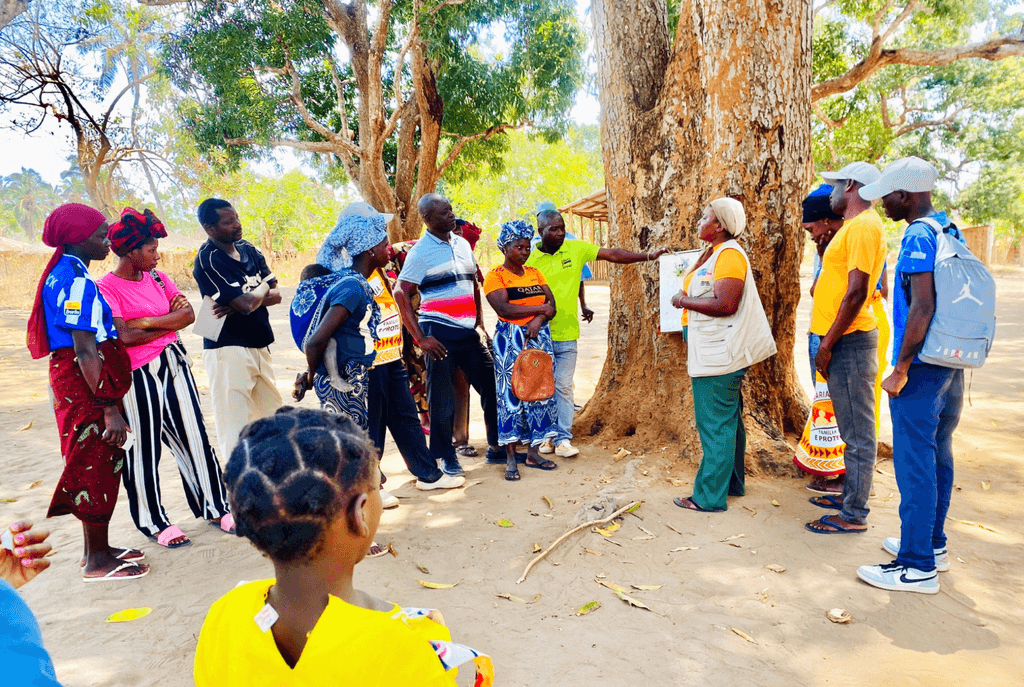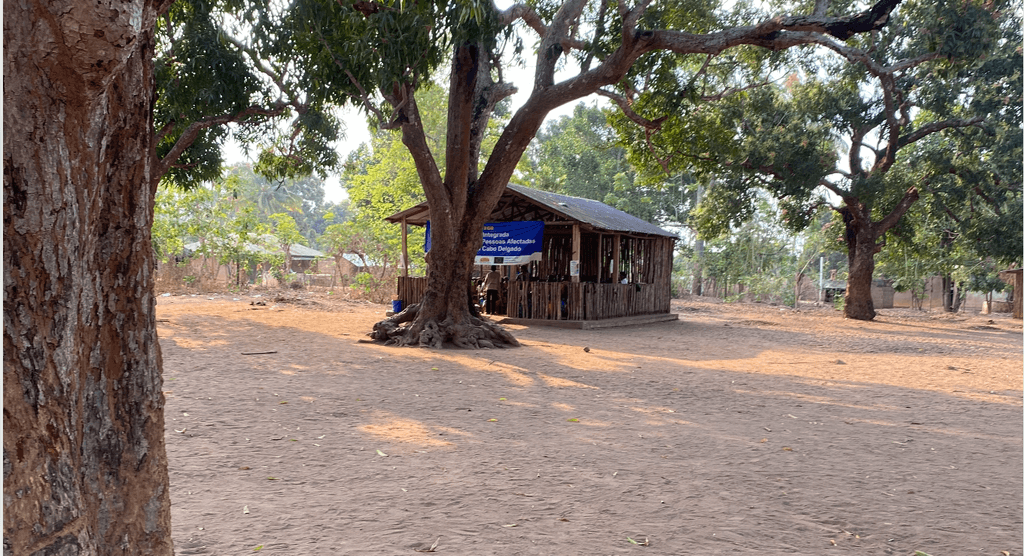Cabo Delgado: The crisis we’re not talking about
1 October 2025While headlines understandably scream of Gaza and Sudan, another crisis quietly deepens in northern Mozambique. In Cabo Delgado, families displaced since 2020 are still waiting – for safety, for dignity, for a future. But with global attention diverted and funding dwindling, their wait is growing longer and more desperate. Mihalis Papamichail, Plan International’s Deployable Humanitarian Diplomacy, Policy & Advocacy Specialist, and Natercia Lichuge, Mozambique’s Advocacy and Influencing Specialist, have just returned from Cabo Delgado and reflect on the realities of these families.

Most families we spoke to had walked for days to escape violence, only to now trek over 13 kilometres just to fetch water. They simply can’t catch a break. Even in Mpeme community, Mueda district, where they’ve sought refuge, safety remains uncertain. We were less than 20 kilometres from Muidumbe, the site of deadly attacks just weeks ago. The threat is never far.
8 years on
The Cabo Delgado crisis in Mozambique that began in October 2017 continues, with over 400,000 people currently displaced and 1.3M people since the start of the conflict. A number that continues to escalate with frequent attacks.
Families are living on the edge, physically and emotionally. Trauma hangs heavy.
Children have especially been affected with nearly 60% of those newly displaced in the recent wave of attacks being children, most of whom arrive unaccompanied, separated from their families.
Beyond displacement, children in Cabo Delgado are facing grave violations, including abductions and recruitment by non-state armed groups. According to the UN Secretary-General’s 2025 Children and Armed Conflict report, Mozambique is in the top 5 countries with the sharpest rise in verified grave violations against children with a 525% increase in 2024. The UN verified that 403 children were recruited and used, including 71 girls, and 468 children were abducted, with 392 of those for recruitment and use. These violations not only rob children of their safety and dignity but also leave deep psychological trauma.
“Families are living on the edge, physically and emotionally. Trauma hangs heavy.”
Mihalis
Those currently living in displacement centres spend their days playing along the streets, growing up without access to education or skills for life. Schools here are overcrowded, with no teachers, and parents are too afraid to send their children to school due to threats of abduction and violence along the way.
When we asked if they had hope that the situation will improve, their answer wasn’t a confident one.
And with the conflict severely disrupting humanitarian access, health services, and mental health, underfunded humanitarian efforts are struggling to keep pace with the growing needs.

This child friendly space stood out as a rare beacon. The heart of the community. It is here that children come to play. To heal. Through singing, drawing, reading, the children are able to receive psychosocial support.
But even these lifelines are under threat. Aid has noticeably reduced, and funding cuts are forcing organisations to scale back.
A crisis of neglect?
This is not just a humanitarian crisis but, sadly, a crisis of neglect.
It is clear that the needs here far outweigh the response and there is an urgent need to restore and scale up humanitarian assistance. We must reverse funding cuts and expand support.
We must invest in education and protection. Parents desperately want their children in school and so safe, accessible and quality learning environments are crucial.
Families are also finding it increasingly difficult to access food. Our colleagues have expressed worry that children, girls and young women are increasingly being forced to engage in negative coping mechanisms including child labour and transactional sex in order to meet their basic needs. There’s, therefore, an urgent need to support targeted interventions to protect children and restore dignity. There’s also an urgent need for reintegration programmes for children who were abducted and/or recruited by armed groups to help restore childhoods and rebuild communities. Programmes and interventions that are currently critically underfunded.
“Parents desperately want their children in school and so safe, accessible and quality learning environments are crucial.”
Natercia
We should not look away
As part of our role, we are keen on sharing what we have seen on the ground to ensure it reaches the eyes and ears of decision makers at national and international levels.
Cabo Delgado is not a footnote. It’s a frontline. And while global resources are being redirected to more visible and widely covered emergencies, we must not abandon communities who’ve been displaced for 5 years, some away from home for 8.
Donors must recommit funding to Mozambique’s humanitarian response, especially for child protection, education, and psychosocial support, and must strive to engage directly with frontline actors to understand the realities on the ground and how they can support communities.
The truth is, the people of Cabo Delgado deserve more than survival – they deserve hope, dignity, and a future.